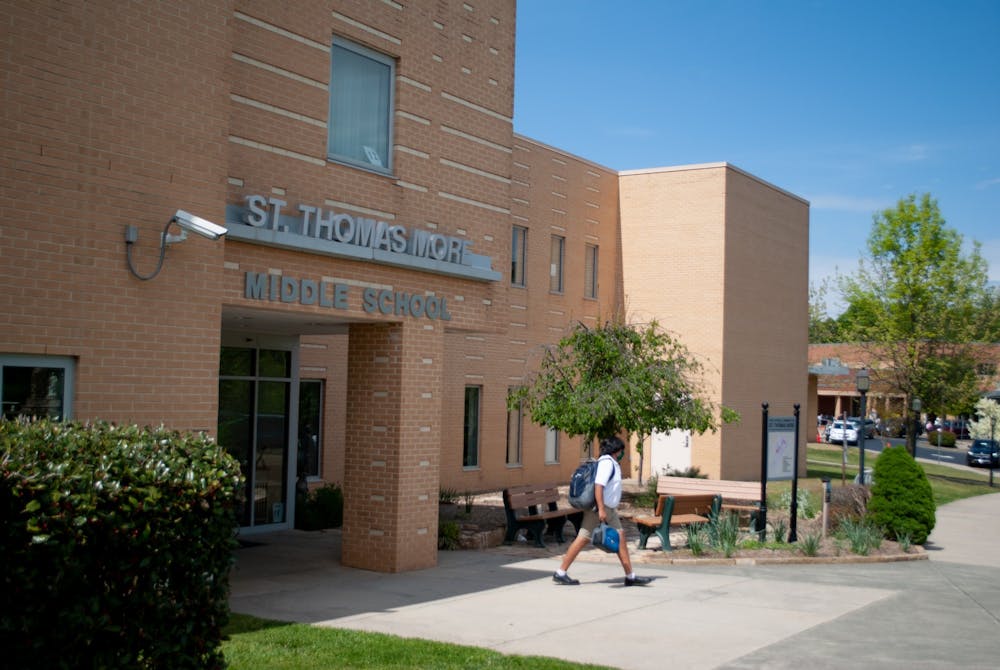“I believe, like our organization does, that we ought to be able to find the best fit for our kids,” Jodice said. “And the traditional thing isn’t necessarily going to be the right fit for every kid.”
However, Jennifer Andrew, the communications director for Public Schools First N.C., said that while families could have the choice to apply to private schools, the schools are not required to accept their kids.
"They are not subject to the same regulations or accountability measures as public schools," Andrew said in an email. "They can and do deny entry to students based on religious background and gender and/or sexual identity."
School choice and the pandemic
School choice policies have been around for decades but are receiving renewed attention, both with former Secretary of Education Betsy DeVos being a vocal supporter of school choice and the many changes to education brought by the pandemic.
Last year, while lockdown measures caused over 70 percent of public schools to cancel in-person classes for months at a time, roughly 60 percent of private schools continued with in-person instruction.
Some of the parents upset with the decision to close public schools turned toward private schools as an alternative. Last August, the National Association of Independent Schools reported a 58 percent increase in interest for independent schools compared to the previous year.
Though school choice policies have provided increased options to some families during the pandemic, some fear bills like HB 32 could have a negative effect on education funding, at a time when schools across the country may face budget cuts due to the pandemic.
Andrew said the bill could pose many risks to public schools in the next year.
“This proposed bill would divert even more money to private schools at a time when cash strapped traditional public schools are struggling to meet the many needs the pandemic has amplified,” Andrew said. “This should be our primary goal, not expanding funding to unaccountable, private, religious schools.”
Robert Luebke, a senior fellow at the conservative John Locke Foundation’s Center for Effective Education, said the issue is not related to funding for public versus private schools. Public schools receive their funding through the Department of Education budget, while the Personal Education Savings Account Program that supports school choice vouchers receives its funding from the Department of Administration.
"(The argument) actually reflects a little bit of a myth, because the funding that is used for these programs is not tied to public school funding," Luebke said.
To get the day's news and headlines in your inbox each morning, sign up for our email newsletters.
Andrew said some also worry about the burden these funding changes could have on taxpayers. The bill requests an increase in nearly $10 million dollars in appropriations over the next 10 years, and could cost the state $159 million over the next nine years, according to N.C. Policy Watch.
Jodice believes HB 32’s expansions of the program, which include eliminating the current $4,200 cap on vouchers and allowing families to apply for vouchers in the spring semester, are important for expanding access to this choice throughout the state, especially for lower-income families who see private school as financially unattainable.
“For our family, it’s been a great transition, but not everybody in our state is able to do that,” Jodice said. “We need to do more. And there’s a long way for us to ultimately get there, but I think we’re starting to make progress.”
@BrianDRosie
@DTHCityState | city@dailytarheel.com




